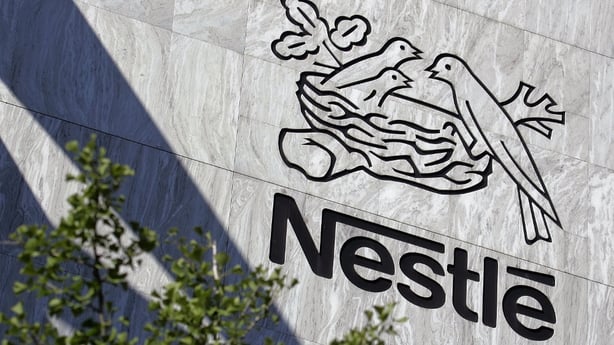When it comes to GLP-1 weight loss drugs, the biggest winners are the pharmaceutical firms behind them.
Danish firm Novo Nordisk makes semaglutide-based Ozempic and Wegovy, and has seen the biggest benefit (so far) as a result.
Between 2020 – when Ozempic was still largely seen as a diabetes drug – and 2023, its revenues rose by 83%, while its profits nearly doubled.
If you’d been shrewd or lucky enough to have bought shares in Novo Nordisk back in 2021, the value of your investment would be 3.5 times greater today.
Another pharma company benefitting from the trend is Eli Lily.
It’s behind Novo Nordisk in developing its own products, but its Zepbound drug was approved in the US late last year, and the expectations are it will enjoy a serious sales boost as a result.
Eli Lily shares have risen by 112% in past year alone on that expectation.
And that’s because this market is braced for continued rapid growth for the foreseeable future.
The weight loss drug market is projected to be worth $100 billion by 2030 – and $150 billion by 2033.
As a result, it’s no surprise to see other firms scramble to get on this train.
AstraZeneca has done a deal worth a potential $2 billion to licence a Chinese oral drug that’s in development.
Meanwhile Roche has announced that its own drug has shown promising results in early testing.
So what companies might see Ozempic and Wegovy as been bad news?

The reality is that a lot – of maybe even all – of that money that’s moving towards weight-loss drugs isn’t 'new’, so to speak. It’s likely being diverted from spending elsewhere.
Today the ‘wellness’ industry is massive – with dieting companies taking a significant portion of that spend each year.
But if you can take an injection (or, in the not-too-distant future, a pill) instead of having to follow a very specific diet plan, then those diet companies may start to seem redundant.
WeightWatchers – or WW International as it’s officially known - is probably the company that’s taken the biggest hit so far.
It, of course, has been front and centre of the diet industry for more than 60 years, but now questions are being raised about its future.
Its shares have fallen by 94% since the start of 2021.
A big catalyst for that was Oprah Winfrey – who had been a board member of WeightWatchers for years, having bought a 10% stake in the firm in 2015.
But late last year she mentioned in an interview that she had started taking Ozempic to manage her weight.
That didn’t really do much for WeightWatchers’ image; but it also went against the agreement she had with them, which specified that she will not engage in any other weight loss on weight management business.
And that culminated in her announcing she would not seek re-election to the company’s board – and she would donate her remaining shares to the National Museum of African American History and Culture.
The share price fell by 20% on the back of that announcement alone.
WeightWatchers has been trying to change its business model to adapt to the growth of weight loss drugs, though.
Last year it bought a company called Sequence – which connects patients with doctors who can prescribe weight loss drugs.
That’s important because part of the FDA approval for these drugs in the US requires that they are to be taken in conjunction with a broader diet and exercise programme.
By being in control of the middle man, they hope they can get people to continue to use their diet system too.
What other diet companies are suffering?
The name Jenny Craig isn’t as well known in Ireland, but it had been a staple of the US diet industry for four decades.
But that ended last year when the company entered bankruptcy – with 1,000 jobs lost and 500 of its ‘centres’ closed.
That can’t be entirely blamed on weight loss drugs – Jenny Craig had changed hands a few times in recent years and had other issues - but it certainly helped to drive the final nail in its coffin.
A more modern victim is a weight loss app called Noom – which has been incredibly popular in recent years, at one point reaching a valuation of $3.7 billion.
But its operations are struggling now – and it’s had three rounds of layoffs in the past year alone.
Are regular food companies at risk too?
Probably to a lesser extent – but yes.
Walmart says it’s analysed its customer data, and those that are filling Ozempic or Wegovy prescriptions are also buying less food than the average customer.
And it makes sense, of course, because it’s an appetite suppressant. If you’re not eating as much, you’re probably not going to buy as much food.
JP Morgan’s analysis suggests that users of the medicines reduce their food purchases by 8%
Nothing dramatic, but still a sizable hit coming down the tracks for both retailers and food producers.
Snacking companies are seen as the most vulnerable – and those that specialise in high calorie, unhealthy kinds of foods.
So big food brands must be worried?

Food and drink companies like these are used to diet trends and fads that impact the kinds of products people want; but the feeling in the industry is that this is different.
For a start it’s moving much faster than your traditional weight loss trend – and most people think it’s here to stay, it’s not something that’s going to fade away in a year or two and be replaced by something else.
Analysis from Goldman Sachs and JP Morgan suggests that anywhere between 15 million and 30 million Americans will be using GLP-1 drugs by 2030.
That’s the US alone – so globally the figure will be much higher.
So it’s going to represent a fairly significant chunk of consumers, who will have different shopping preferences than might be considered ‘normal’ now.
And as a result we’ve seen share prices of big companies like Nestle, Mondelez – which owns Cadburys – Coca-Cola, PepsiCo, drop or stagnate in the past two or three years.
And when they’re holding their quarterly and annual results press conferences, they’re regularly getting asked about the likes of Ozempic, and what it will do to their businesses.
Publicly, a lot of these companies are being very calm about the whole thing.
The CEO of Mondelez said he’s not worried about sales – and it will have a marginal effect on their business.
He argues that they were already in the process of reformulating their products anyway to make them healthier; or at least smaller and less calorie dense.
Part of that was responding to consumer demand – but part of that was about shrinkflation and making product portions smaller.
Coca-Cola is also giving off an unbothered vibe – it says it’s been broadening its portfolio for years, so it’s no longer focused on sugar-heavy soda.
It now has juice and smoothie brands, coffee brands like Costa, protein drinks and so on.
And it’s putting more emphasis on sugar-free options – in part because of the likes of the sugar tax that’s in place here and in other countries.
But all that being said, it’s likely that – behind the scenes – they're a bit less serene about this.
A product development and formulation expert in the food industry says that there are lots of conversations going on around this at the moment – and companies are trying to figure out how they can adjust to cater to weight loss drug users.
So what are companies doing to adjust?

The first company to really go public on their plans is Nestlé, which is planning a frozen food line called Vital Pursuit.
They said it’s intended as ‘companion’ for those on GLP-1 medicines; and essentially what it will feature is smaller portion sizes, and more nutritional elements, like higher protein and fibre.
The argument being that people on these drugs want to eat less – but they also need to ensure that they’re not missing out getting all the vitamins and minerals that their old diet might have provided.
To the same end, vitamin and supplement companies are seen to be a potential beneficiary in all of this – the US chain GNC now has dedicated sections in its stores for those on GLP-1 medicines.
In the US too there have been brands like Biocare and Herbalife which have started selling drinks targeted at these drug users.
Is this just a bit of band-wagoning by these companies?
To an extent, yes.
Food companies are always happy to jump on a trend if they think it’s going to boost – or protect – sales.
And there is specific criticism of what Nestlé is doing with its frozen food line – because ultimately that’s ultra processed convenience food.
That isn’t healthy, and it’s not helping people to readjust their habits so that, when they come off the drugs, they’re in a better position to maintain their weight loss.
The brands also have to take care too, because while they want to align their products to weight loss drugs – they also can’t give the impression that they’re officially linked. Nor can they suggest that their products are in some way medicinal.
An industry expert suggests that what the likes of Nestlé are doing represents the first generation of products catering to these drug users.
All they’re doing is the easy stuff that they know how to do already, like reducing portions and adding nutrition.
The market these drugs have created is still fairly new – so it’s not clear what consumer demands will come from it.
Some users get nausea or stomach problems – but some don’t.
Some have reported that sweet foods taste even sweeter – to an unbearable degree – so that may lead to a change in how some products are formulated.
The initial indications are that people tend to gradually put the weight back on after they stop using the drugs, too.
And all of those things present a challenge – but also an opportunity – for food companies when it comes to creating new products.
Those in the industry say they have the technology to optimise products in any way, once it knows what the end goal is.
But for those changes to be science-based and reliable, it’s going to take time and research.







